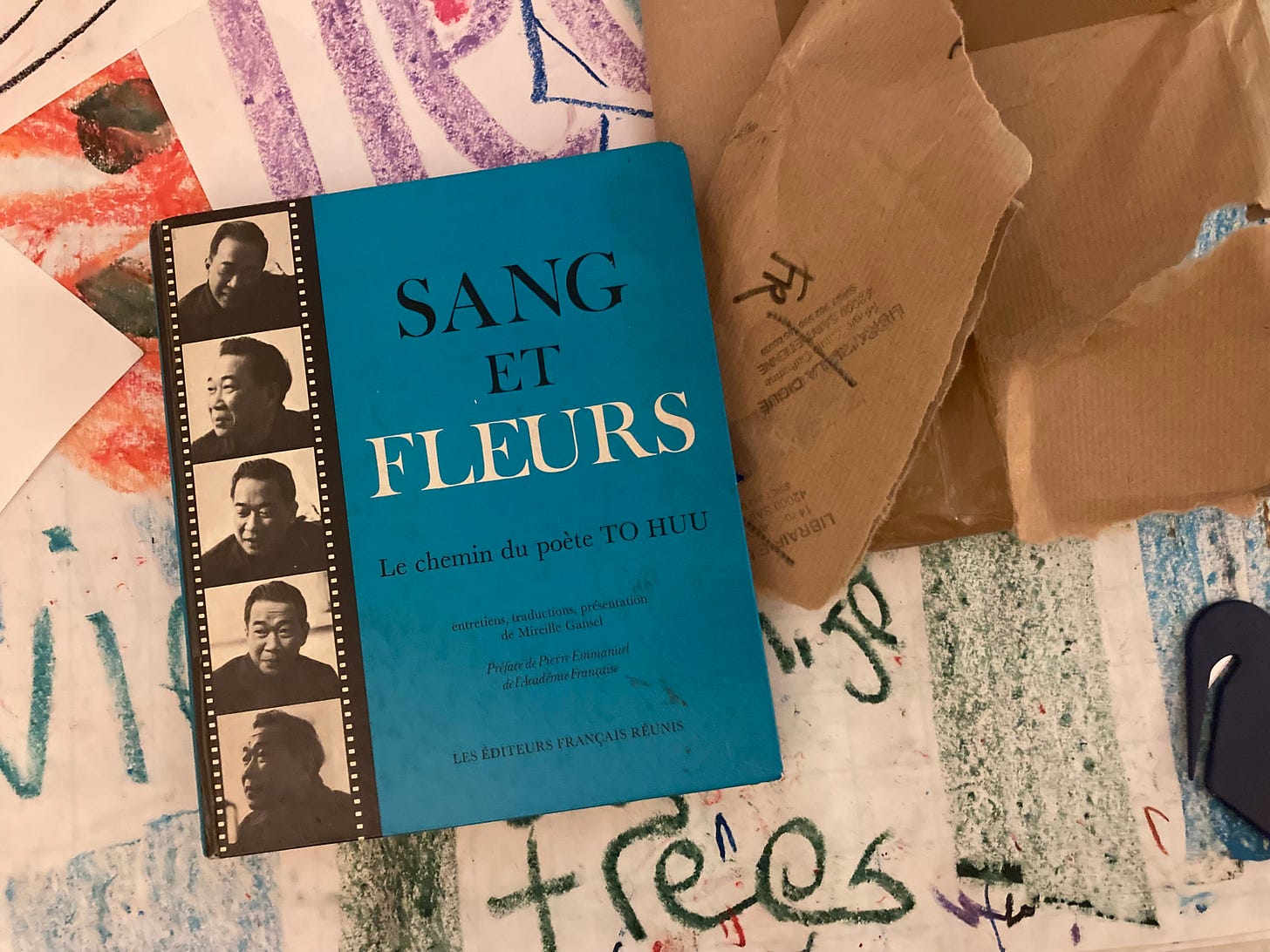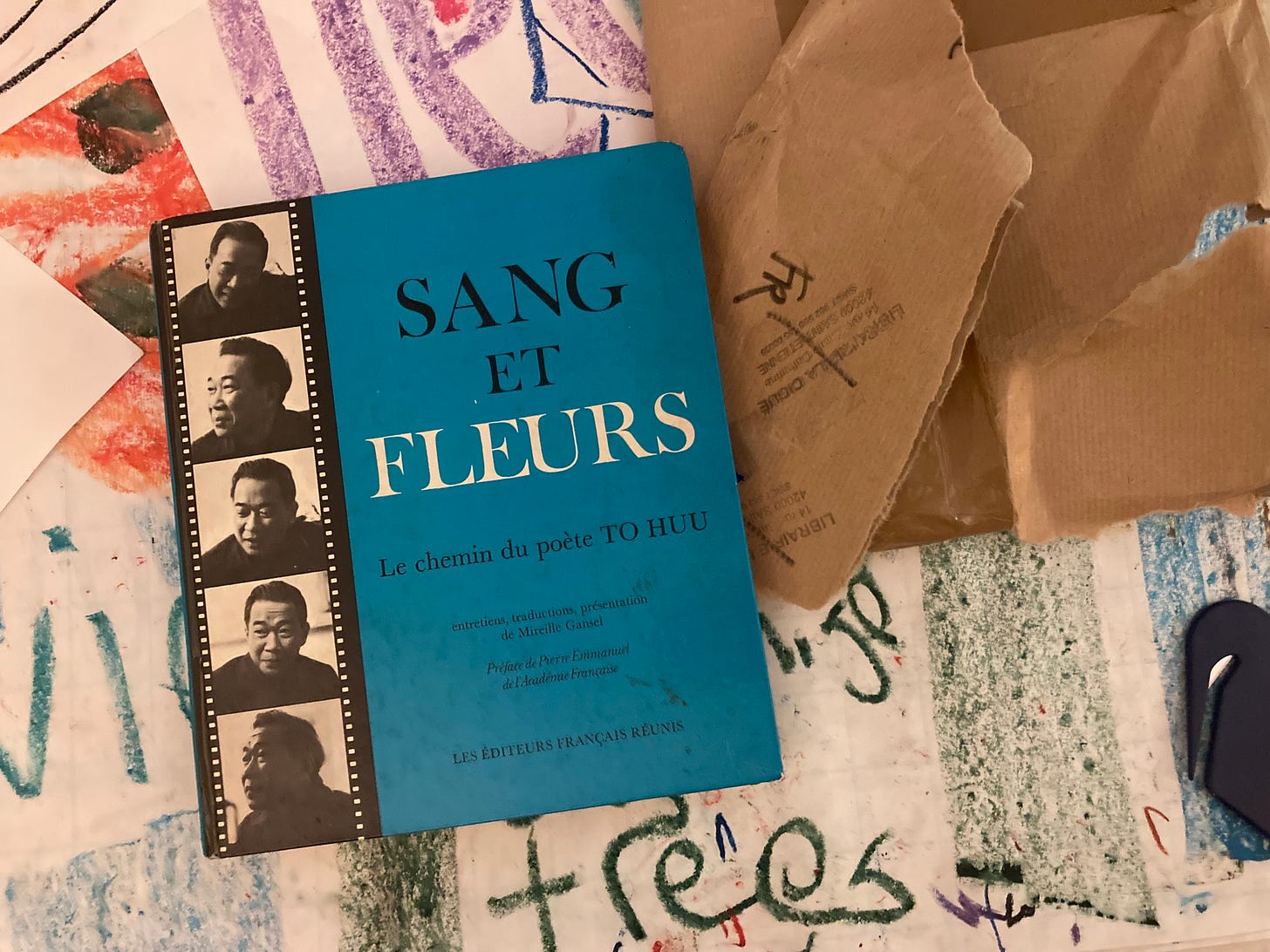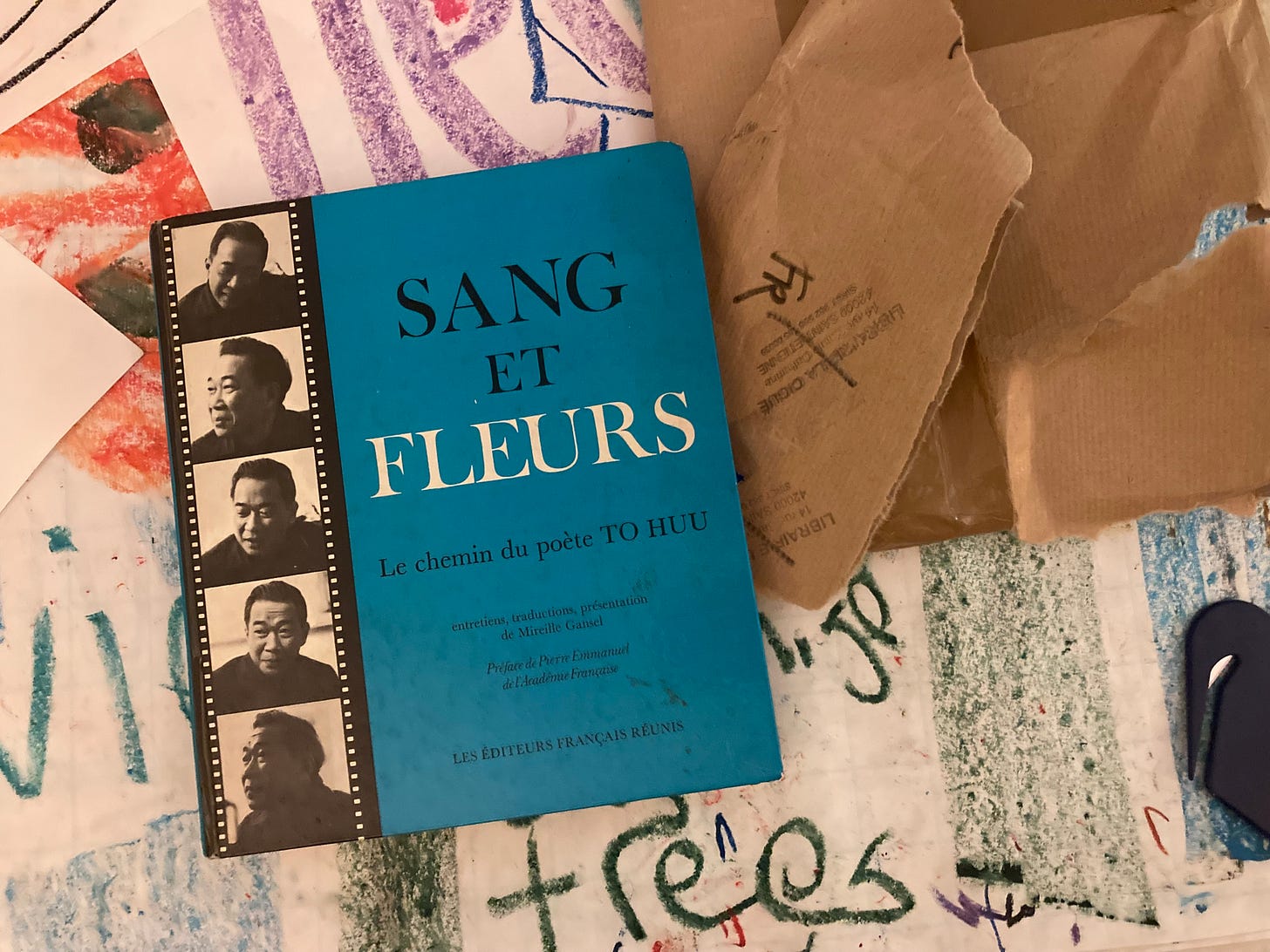Sang et Fleurs (ii)
From poet Tố Hữu and translator Mireille Gansel with poets Xuân Diệu and Pierre Emmanuel at Les Éditeurs français réunis
SANG ET FLEURS
Mireille Gansel has translated Màu và hoa in another book. That poem is a war cry about a B-52 shot down into a village that raised flowers outside Ha Noi, in 1972.
The title only of the poem appears here as the title of a book of other poems. In English, Blood and Flowers calls to mind the strike at Lowell, Massachusetts in 1912, Bread and Roses.
The poem and the song of that name have been at the barricades since well before the poet’s birth in 1920, but not in French or Vietnamese. Forget about them.
BLOOD AND FLOWERS
Le chemin du poète TO HUU
Chemin in French suggests a path from one place to another. The path of the poet To Huu was instead the open-ended revolutionary road, đi theo cách mạng.
To Huu is his Party as well as pen name. It is a nom de guerre. The mother of Nguyễn Kim Thành died when he was 12.
He left the countryside to study at Hue where he joined the struggle at age 15, the anti-colonialist bar mitzvah. He did 3 years in prisons, 1939-1942, the anti-colonialist baccalaureate.
At 25 in 1945 he led the uprising at Hue. He trampled dissent among his literary peers after the victory over France by the popular front in 1954 then became a big cheese of the central committee of the party.
When the poet Brecht sang hymns to Stalin, our Vietnamese Communist poet served as a chief deputy to such as Joe.
BLOOD AND FLOWERS
Path of the poet TO HUU
entretiens, traductions, présentation de Mireille Gansel
Mireille speaks with the poet and one of the peers he kicked into line, Xuân Diệu, about the path To Huu took from his mother’s village to Ha Noi where the three worked together around 1974.
She tells of the process in another book, Traduire comme transhumer. Not traduction comme trahison as the saying goes, betrayal, but what they do in the Hebrew scriptures and the gospels, travel with a flock.
Her given name means miracle.
BLOOD AND FLOWERS
Path of the poet TO HUU
interviews, translations in presentation by Mireille Gansel
Préface de Pierre Emmanuel de l’Académie Française
Pierre means rock, of the church, and Emmanuel is the messiah Jews also prepare for, while god is always with us as the Hebrew suggests. Pierre Emmanuel was a left Christian who had served France under the Nazis.
The Académie is the starchiest collection of stuffed shirts in all of Francophony. Our man dates his preface to July, 1975. He quit the Académie 4 months later, in November, when they seated a collaborationist.
BLOOD AND FLOWERS
Path of the poet TO HUU
interviews, translations in presentation by Mireille Gansel
With a preface by Pierre Emmanuel of the Académie Française
LES ÉDITEURS FRANÇAIS RÉUNIS
Communists. The real deal from the crazy brave underground to the paunchy Party. FRENCH PUBLISHERS REUNITED after victory from 3 clandestine presses founded in hope of victory after the fall of France.
ÉDITEURS suggests both editors and publishers, as in Paris a publishing house has an esprit, intelligence. The literary director in 1975 was Rouben Mélik, once a Communist resistant, under publisher Madeleine Braun, retired Communist legislator.
BLOOD AND FLOWERS
Path of the poet TO HUU
interviews, translations in presentation by Mireille Gansel
With a preface by Pierre Emmanuel of the Académie Française
REUNITED EDITORS AND PUBLISHERS OF FRANCE
This was the second Viet Nam letter of 5 addressing Sang et Fleurs from poet Tố Hữu and translator Mireille Gansel with poets Xuân Diệu and Pierre Emmanuel at Les Éditeurs français réunis.
I sent the first on February 28, 2023, then the third on March 9, 2023, the fourth on March 12, 2023, and the fifth on March 24, 2023.
Viet Nam letters respects the property of others under paragraph 107 of United States Code Title 17. If we asked for permission it wouldn’t be criticism. We explain our fair use at length in the letter of September 12, 2022.









Interesting